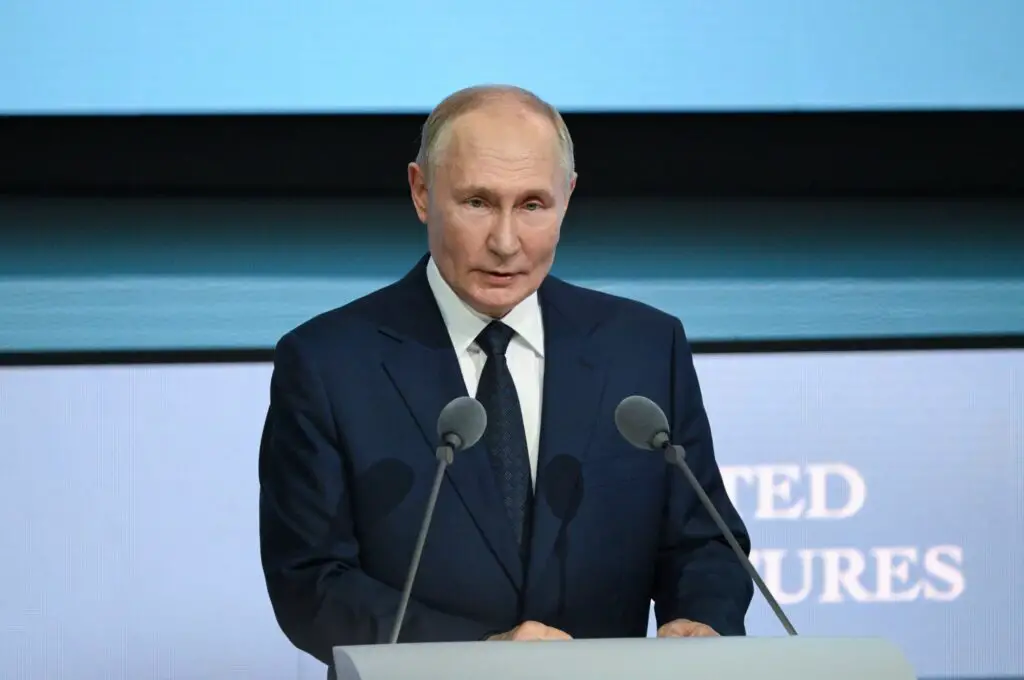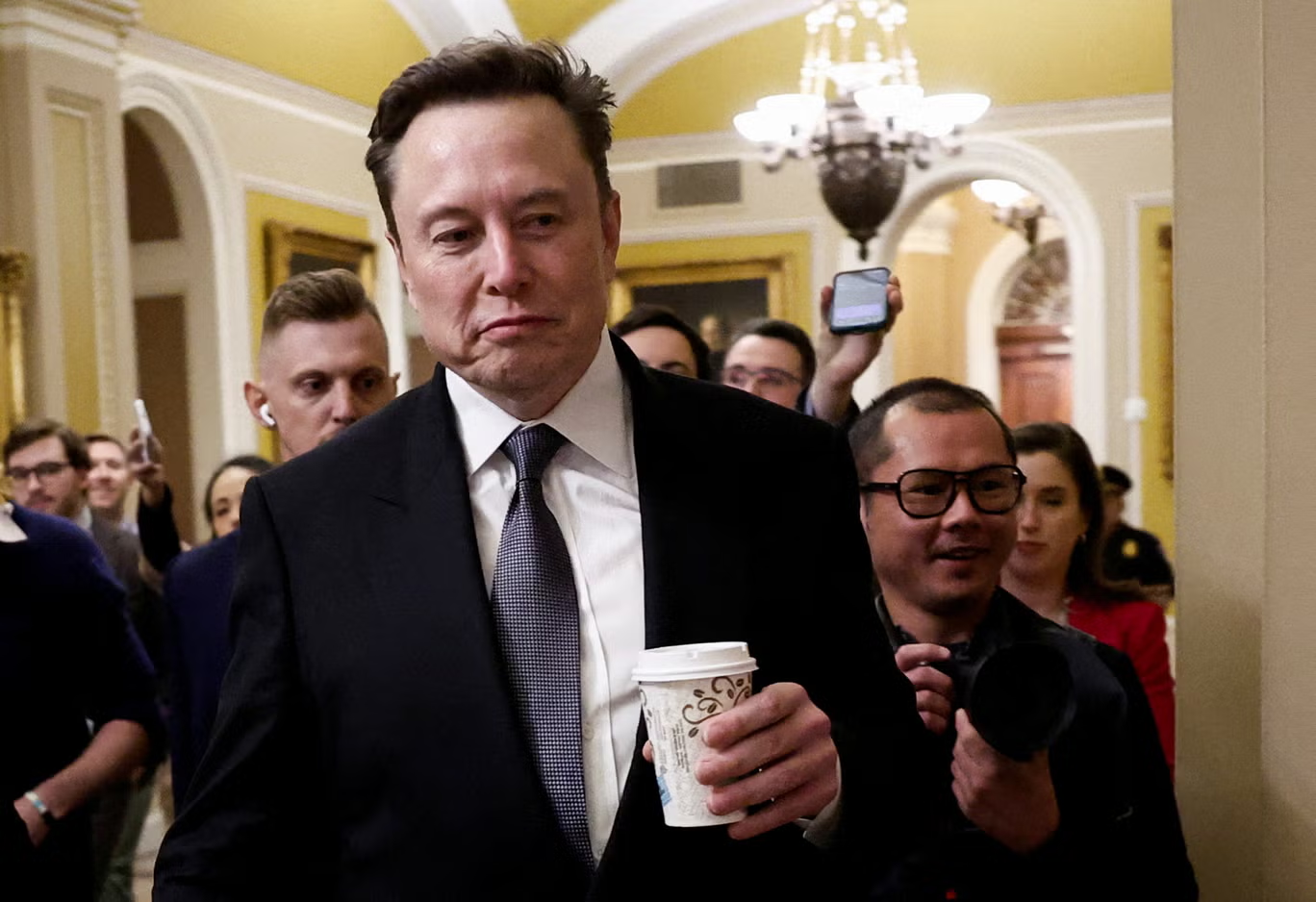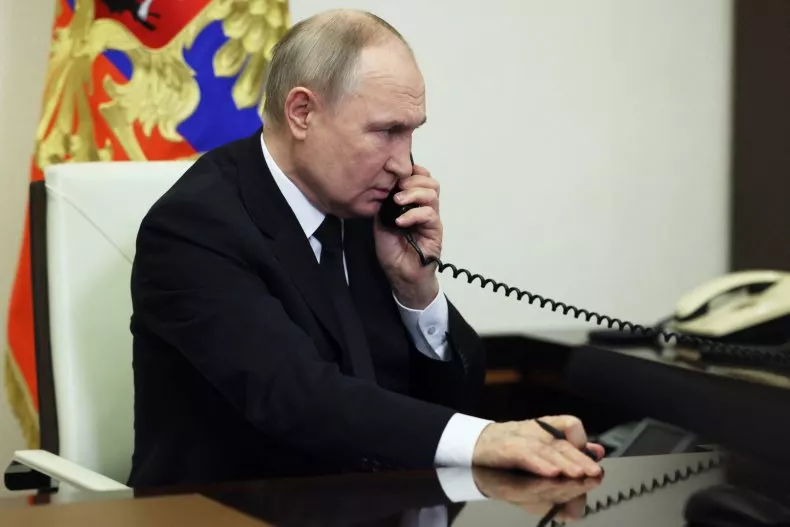Ultimatum Sparks Concerns Over Escalation
Russian President Vladimir Putin has issued a direct challenge to NATO, urging the alliance to recognize “new territorial realities” before any peace negotiations regarding the ongoing war in Ukraine. The demand came during a contentious phone call with German Chancellor Olaf Scholz, marking their first direct discussion since December 2022.
Putin Blames NATO for Crisis
During the call, Putin repeated the Kremlin’s narrative, accusing NATO of pursuing an “aggressive policy” aimed at creating an “anti-Russian bridgehead” in Ukraine. He stated that Western actions and NATO’s expansion had provoked the conflict, further alleging that Russia’s security interests and the rights of Russian-speaking Ukrainians had been ignored.
“Negotiations must account for Russian interests and proceed from new territorial realities,” the Kremlin said in its readout of the call. This pointed to Russia’s insistence on keeping territories it has occupied since the invasion began, a condition Kyiv has categorically rejected.
German Chancellor Faces Political Heat
The phone call came amid growing political pressure on Scholz domestically, as Germany prepares for a snap election on February 23. Scholz’s coalition government has been criticized by opposition parties, including Russia-friendly groups, for not pursuing enough diplomatic channels to end the conflict.
Berlin’s official statement, however, emphasized Scholz’s firm stance. The German leader condemned Russia’s actions, calling for an immediate end to the aggression and a full withdrawal of troops. His approach aims to balance Germany’s internal political dynamics while maintaining solidarity with NATO allies.
Kyiv Voices Strong Opposition
Ukrainian President Volodymyr Zelensky has expressed alarm over the implications of the call, warning it could embolden Putin. In his nightly address, Zelensky described the discussion as opening a “Pandora’s box,” allowing Russia to maintain its aggressive policies without making meaningful concessions.
“It’s crucial for Putin to ease his isolation,” Zelensky stated, criticizing the engagement as potentially undermining Ukraine’s position. The Ukrainian Foreign Ministry echoed these concerns, arguing that dialogue without consequences only reinforces Putin’s strategy. “Concrete actions are needed to force peace, not conversations that play into his hands,” the ministry said.
International Reaction and Context
An unnamed Western diplomat shared concerns with Reuters, describing the phone call as a “bad signal,” especially in the wake of U.S. President-elect Donald Trump’s calls for reduced aid to Ukraine. Trump’s stance has raised fears among NATO members about a potential shift in U.S. foreign policy, potentially emboldening Moscow.
The diplomat suggested Scholz might use the call to demonstrate Putin’s unwillingness to compromise, appealing to German voters ahead of the elections. However, critics argue that engaging in such dialogue risks legitimizing Russia’s demands and prolonging the conflict.
Tensions Remain High
Putin’s ultimatum to NATO underscores the deep divisions preventing meaningful peace talks. While Scholz’s engagement reflects an attempt at diplomacy, it has sparked concern among Kyiv and Western allies that dialogue without accountability may embolden Moscow. As the war continues, the international community faces mounting pressure to balance diplomatic efforts with tangible measures that counter Russian aggression. Whether this call signals progress or a setback in resolving the conflict remains to be seen.
Related Posts
-
Putin Warns of Retaliation Over Western Long-Range Missile Support to Ukraine
-
Putin Pressured Elon to Block Starlink over Taiwan












